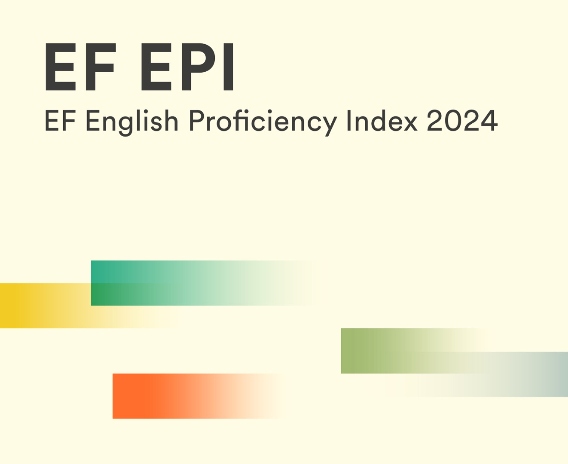A good command of English can take you far these days – from an international career to a global, connected future. In every country, they are also an important factor in assessing economic competitiveness and future prospects.
The EF English Proficiency Index (EPI) compares the English proficiency of over 2 million adults worldwide and shows important correlations between a country’s English proficiency level relative to economic prosperity, life expectancy and per capita income.
As in previous years, the Dutch are back in first place in 2024, followed by Norway and Singapore. Sweden and Croatia follow in fourth and fifth place.
Germany is in 10th place. However, for the first time since 2017 we achieved below 600 points (598), which means we slip from the “very good knowledge” category to “good knowledge”. Our German-speaking neighbors in Austria are still ahead of us in 9th place, while Switzerland is in 31st place.
However, there are significantly worse results in southern countries. For example, popular holiday destinations Spain and Italy only ranked 36th and 46th in the “Intermediate English Skills” category.
Karlsruhe has the best English skills
There are also regional differences in the German city rankings. This year, Karlsruhe is ahead with first place in the city race. The federal state of North Rhine-Westphalia, on the other hand, occupies pole position in a state comparison.
The regional duel between major cities such as Cologne (658 points) and Düsseldorf (636 points) is clear. Metropolises like Berlin and Hamburg end up in the second half of the table this year, albeit with scores above 600.
German men still have better English skills than women
In the battle of the sexes, German men have been defending the title as the gender with the better English skills since 2020. The men scored 602 points and are a full 7 points ahead of the German women with 595 points. This trend can also be seen worldwide.
If you look at the results with a global lens, you can see the following: People between the ages of 26 and 30 and between 31 and 40 are right at the top, with +13 and +14 points respectively. In contrast, 18-20 year olds remain at the bottom of the global age group after the sharp decline in knowledge in recent years, although with a slight improvement compared to the previous year.
The effects of the pandemic
While the global pandemic brought many parts of the economy and the world of work to a standstill in 2020, the exceptional situation has shown what a significant advantage large-scale digital communication has for a company’s productivity. English will be a key qualification for those who want to work remotely.
The group of pupils and students also had to adapt to a new way of learning English during the pandemic: online lessons. The changed learning environment and the new, digital-only methods represent a major challenge and may have contributed to a slowdown in English acquisition. In addition, for this age category there is no need for stays abroad as part of school and study trips, a gap year or a semester abroad.



